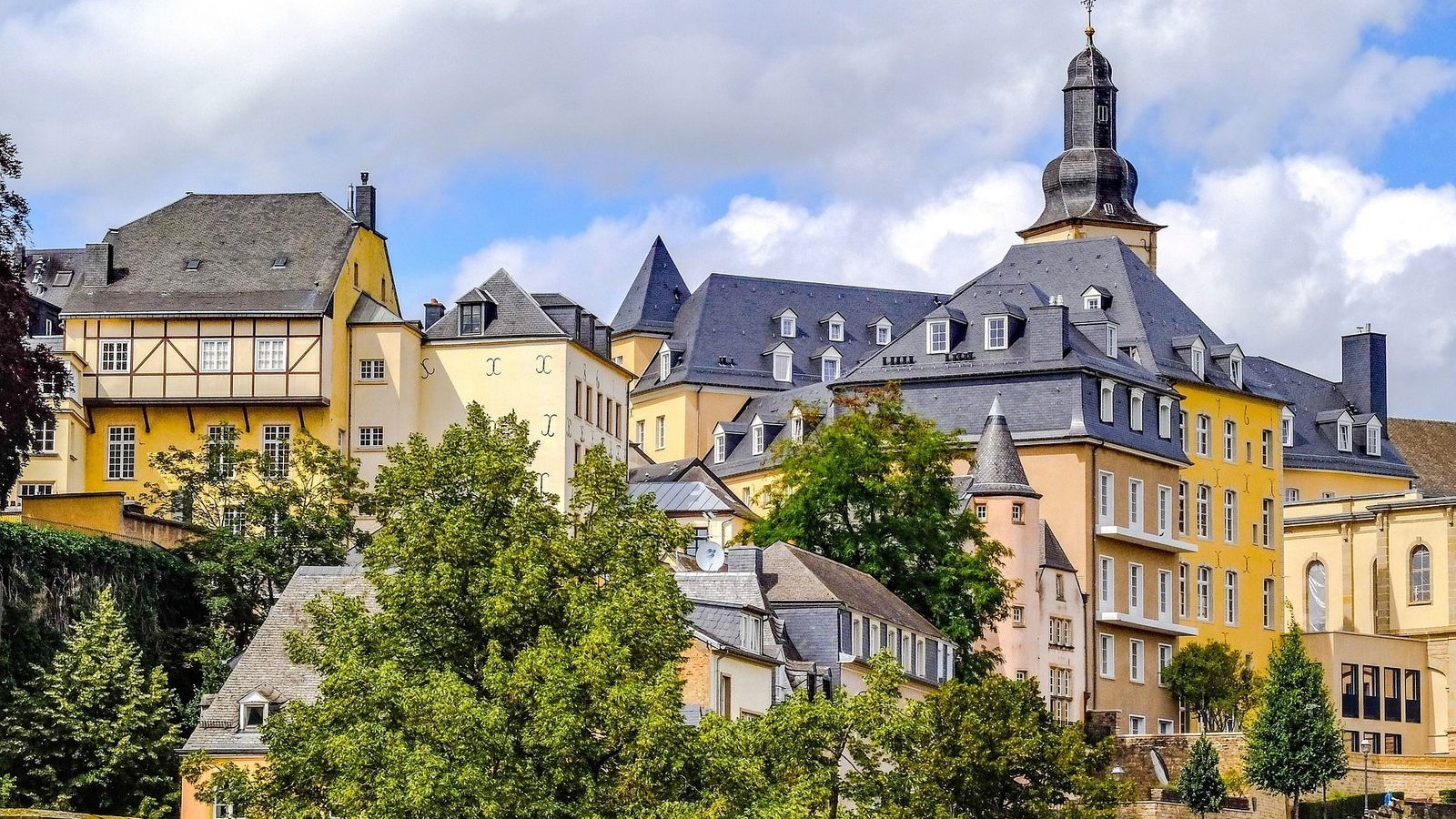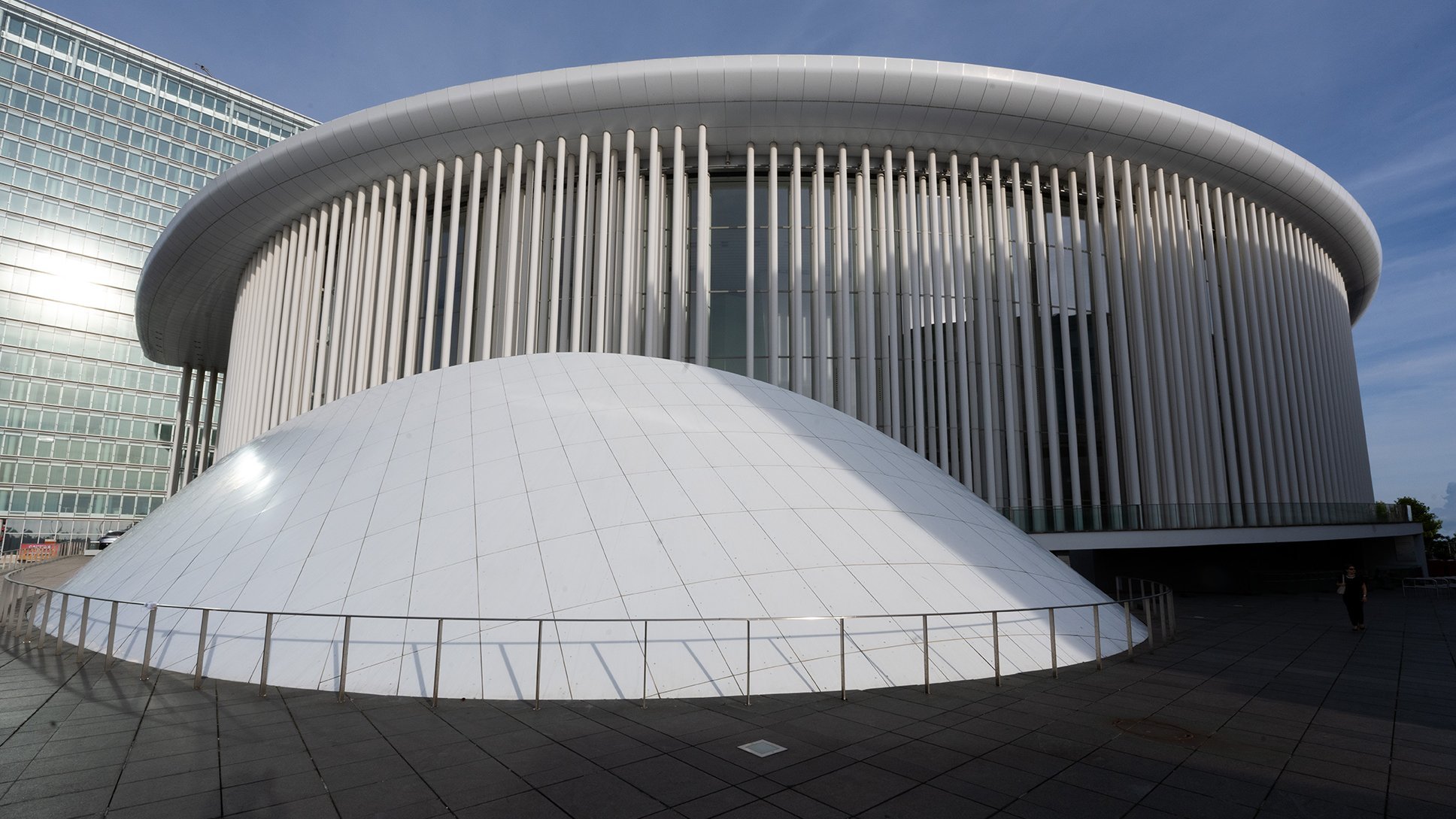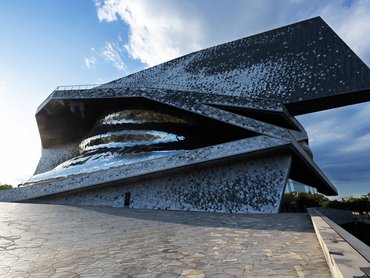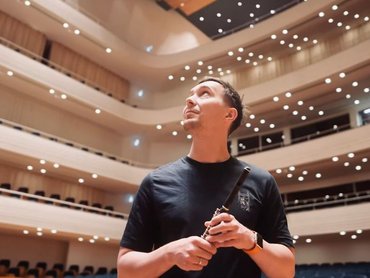Luxembourg and its music

In 1925, the Berliner Philharmoniker made its first guest appearance in Luxembourg. The venue was an administrative building. Since then, the city on the Alxette river has seen many musical developments. A brief history of music in Luxembourg.
The popular song “Kättche, Kättche bréng mir nach e Pättchen”. a homage to Moselle wine, is known, loved and sung by (almost) everyone in Luxembourg, and medieval sources show that this region was home to a people who loved to sing. But due to its chequered history – the Grand Duchy of Luxembourg has belonged to various ruling dynasties over the centuries – no independent musical tradition developed there for a long time. This changed, however, when the country gained its independence after the Congress of Vienna in 1815. “Today, musical life in Luxembourg is extraordinarily diverse,” says Damien Sagrillo, professor at the University of Luxembourg and author of Musikgeschichte Luxemburgs, the first history of music in Luxembourg. “It offers classical music, modern popular music, numerous music and singing societies and, for us musicologists, interesting research opportunities far beyond music history: ethnomusicology, music pedagogy, and cultural development are all exciting topics.”
A burgeoning musical life
The newly awakened national consciousness at the beginning of the 19th century was accompanied by a blossoming of musical culture – the first music school opened its doors, and choirs as well as military and brass bands were formed. The leading composers of the time were Laurent Menager, Jean-Antoine Zinnen, who wrote the Luxembourg national anthem, and Edmond de La Fontaine, known as Dicks. At the beginning of the 20th century, two female composers became influential figures on the “Lëtzebuerger” music scene: Lou Koster and Helen Buchholtz.
However, musical life at that time was mainly dominated by amateur music-making. It reached a new level in 1906 with the founding of its own conservatory, which trained professional musicians. In 1933, another important step followed: the radio station Radio Luxembourg created its own symphonic ensemble, the Orchestre de Radio Luxembourg, which today is called the Orchestre philharmonique du Luxembourg. It acquired its own home in the Philharmonie in 2005. From the very beginning, the group became one of Europe’s leading orchestras, making a significant contribution to the promotion of contemporary music by commissioning compositions from Luxembourg composers.

Playground of the musical avant-garde
There are now numerous other ensembles of international standing in Luxembourg, such as the Solistes européens Luxembourg, the Orchestre de chambre du Luxembourg and the Luxembourg Sinfonietta. The latter was founded by the composer Marcel Wengler, who, along with Claude Lenners, Alexander Müllenbach, Camille Kerger, Georges Lentz and Ivan Boumans, is one of the creative minds of the contemporary music scene. Groups such as United Instruments of Lucilin and Noise Watchers Unlimited are known for experimental and unconventional music performances. In addition to the Philharmonie, the Grand Théâtre de la Ville de Luxembourg is an important cultural hotspot, a performance venue for theatre, opera and dance.
Another pillar of Luxembourg’s musical life is light music. Emile Boeres, the Luxembourg composer, set the tone in this field with his operettas and revues, as did exiled musicians such as Bruno Granichstaedten, who found a refuge in Luxembourg after Hitler came to power. They contributed significantly to the further development of the operetta and jazz scene. And also today, there is a lot going on in Luxembourg in terms of music. As a cosmopolitan and open-minded country in the heart of Europe, Luxembourg is an inspiring place for many creative figures, such as the songwriter Sascha Ley or the composers Gast Waltzing and Pierre Cao.

